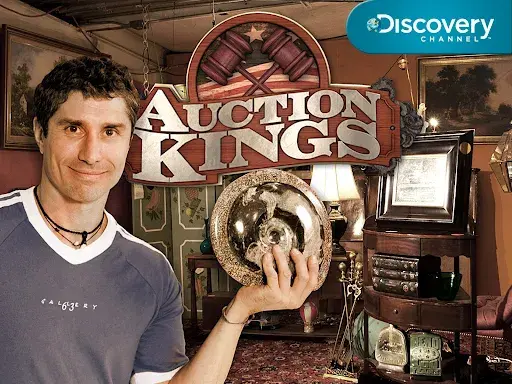Consigning to an Auction House: 5 Things to Ask

Are you looking to sell a fine collection of personal items, or perhaps a grouping of inherited ones, through an auction? There are a few things you need to know before consigning to an auction house. For anyone looking to sell, Auction Daily’s guide can help.
First, consignors should get familiar with the basics.
- What is a consignment auction? When someone wants to sell their items, they can temporarily give them to a third party, such as an auction house, which then facilitates the sale on behalf of the owner. This is known as a consignment auction.
- How much does an auction house charge the seller? There are certain fees associated with auctions, such as pick-up and packing costs. Auction houses will also take a portion of the final sale price. Each auction house has different policies that should be reviewed carefully before entering into a contract.
Below are five key questions to ask any auction house to vet their operations and to understand how they work with consignors and their goods.
1. What is your fee structure?
It is very important that all consignors receive a formal contract from the auction house, and this must specify the auction house’s fee structure. This can vary tremendously from auction house to auction house but usually involves a seller’s fee – a percentage based on the hammer price made per lot. Today, these fees seem to range from 0% for large, important collections to 35 to 40% – or more – for others. Some auction houses are open to negotiation on seller’s premiums, while others are not. It never hurts to ask for a lower fee.
Some auction houses charge a fee to pick up and pack your items or collection from your home or office; others may charge for photography, publicity, or cataloging preparation. There is no “right or wrong” fee structure; what is important here is that the consignor understands exactly what their costs will be to work with any given auction house, so there are no surprises. Of course, it is always a good idea to contact several auction houses to compare costs and services for a consignment auction.
2. What is your experience or expertise with items in my category?
Some auction houses specialize in specific antique or collectible categories, including fine art, stamps and coins, dolls and bears, furniture, ephemera, Americana, etc. If you are selling a collection representing a specific category of goods, look for an auction house partner with proven experience or history with those sorts of items in consignment auctions. Ask specifically about their record prices and industry reputation within the category. Chances are, the auction house also has a list of customers interested in specific collection categories. This is extremely helpful in attracting the right buyers to a sale. In a perfect world, they might have a category expert on staff or work with a knowledgeable freelancer who is responsible for cataloging and evaluating these goods.
It is possible that the best fit is NOT located near the collection. However, the costs to transport the goods to the auction house can turn out to be relatively insignificant if the specialty auction house does an exceptional job selling the lots. The fit really is everything here. You can also consider working with a company specializing in online consignment auctions for added convenience and flexibility.

3. How do you promote your sales?
Today, given the COVID-19 pandemic and the nearly universal adoption of internet bidding, it is highly recommended that consignors partner with auction houses that also make their auctions and lots available for bidding online. Bidding platforms operated by Bidsquare, LiveAuctioneers, Invaluable, and in-house platforms are a few examples. In this way, bidders worldwide can participate in any given online consignment auction– increasing the probability that a lot will catch more than one bidder’s eye and, as a result, generate better sales results.
Some auction houses have in-house or freelance publicists who are responsible for spreading the word about key sales and lots via press releases and social media posts. Look for an auction house partner with a strong website and Facebook, Instagram, and Twitter presence to ensure that news about specific sales travels wide and far – and virally!
4. How and when do I get paid?
It is essential that this is spelled out specifically in a consignment auction contract. Often, this is six to eight weeks post-sale, after the auction house has had the time to collect and process buyer’s payments and send out items that sold at the auction. Sometimes, an auction house will not send any consignor’s payments until every item on consignment has sold, which may be months or longer – depending on that auction house’s sale schedule and if the collection is being sold over numerous consignment auctions. Some auction houses are willing to negotiate on payment schedules, and others are not. It never hurts to ask about alternative payment plans.
Like fee structures – there is no right or wrong way to do things here. It all depends on the auction house’s protocol as well as the seller’s expectations and level of urgency for payment. Get everything in writing here.
5. What happens if some of my items do not sell?
Again, this must be addressed in a consignment auction contract. Auction houses are very interested in strong sell-through statistics, meaning the percent of the lots on offer that sold per sale. The higher the sell-through rate, the better the auction house’s performance. As such, auction houses are most interested in selling as much per sale as possible. However, sometimes items pass at a sale, or a bidder ends up not paying for an item.
Consignors have a few options here when it comes to passed lots. They can ask to have the item or item returned to them – but be certain in any pre-sale auction contract to specify who is responsible for the postage costs. Consignors can also ask auction houses to present passed lots again at the next appropriate sale. Be sure to get the date(s) of future sales events in writing. Sometimes the auction house reduces the pre-sale estimate or opening bid on these previously passed items to stimulate interest in them. Consignors must keep an active and updated inventory of consigned items and their status with the auction house, especially if their items did not sell or they are being offered over numerous auction events. The auction house should also be able and willing to provide such tracking information.
We hope this helped you learn more about the process of consigning to an auction house. Want more resources for collectors? Last year, Auction Daily interviewed Francesco Gibbi about art collecting as a financial investment.










